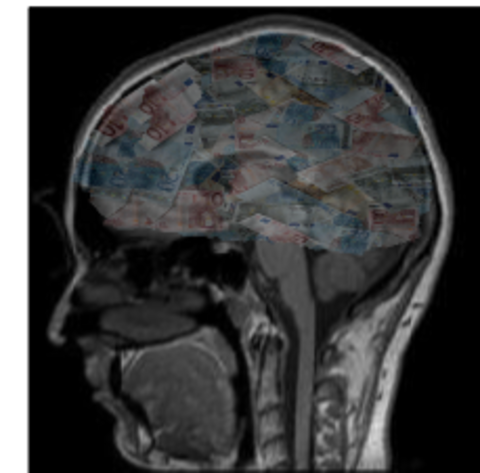Article about the impact of facial expression on behaviour in ultimatum-game and event related potentials in EEG is going to be published in Psychophysiology in april 2014.
moreNeuroeconomics
Neuroeconomics
Neuroeconomics is a relatively new research field, which investigates neuronal activity and neuronal connections that play a role in financial decision making, as well as the reasons and motives behind these decisions. Classic economics deals with the distribution of goods and thus describes peoples' or organizations' behavior in financial situations, both on a small scale (for example concerning a simple decision of a single person) as well as on a larger scale (for example concerning the exchange of goods between companies on the financial market).
The classic model is one of people acting economically and maximizing their utility, known as the model of the Homo economicus. Some economists, but also psychologists from the field of decision research, noted that this model needs to be revised, taking into consideration certain behaviors like the willingness to donate money and the important role of emotions in decision making, for example. These considerations resulted in a research field, termed behavioral finance, which took a closer look at behavior in financial situations and its motivation. Neuroeconomics came into being at the beginning of the 1990s, when the neurosciences experienced a boost by a new imaging technique, the functional Magnetic Resonance Image (fMRI). This technique made it possible to "watch people think" while making financial decisions and thus identify active brain areas that are important for these kind of decisions. Thus the neurosciences gained influence, both due to their research methods, like electroencephalography (EEG) and fMRI, as well as for basic research in microbiological areas, for example investigating the dopaminergic system. Scientists from the fields of psychology, neuroscience and economics joined forces and "founded" the new discipline of neuroeconomics. Since then the number of studies conducted in this field has grown rapidly, expressing the public's interest in this research as well as its necessity for the economy.
Current events
Article concerning need for cognition und ultimatum-game published in Journal of Research in Personality.
moreArticle published: Arousal and risk taking
07/09/2013Article concerning arousal and risk taking published in Psychophysiology
more





